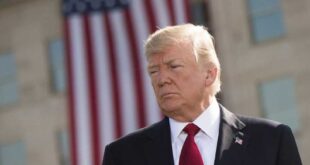Eng. Saleem Al Batayneh
In politics, no one wants to be wrong, and memories often serve to remind us of what was predicted. On January 15, 2023, I wrote an article that was published in the London-based newspaper Rai Al-Youm and the American Geostrategic Media, titled: “The Jordanian Political Scene is Adjusting Itself! And the Muslim Brotherhood is Part of the Upcoming Political Game.”
The question isn’t just about participation in political processes; it’s about the wisdom of how those processes unfold. Today, more than ever, complex questions remain unopened, but their time will come. The political shifts now at play in Jordan have their roots in deep motivations. To analyze current events requires understanding a larger, upcoming political game that must, by all means, remain locally driven. To ignore this imperative is to risk going against Jordan’s national interests.
Revisiting the Lessons of King Hussein’s “Pot Lid”
The metaphor of “opening the lid of the pot” was famously used by the late King Hussein bin Talal following the April Uprising in 1989. Those events sparked a resurgence of political life in Jordan, leading to parliamentary elections that were free and fair. The country underwent major reforms—political, economic, and social—which set the stage for a more open and accountable political system.
Sadly, decades later, Jordan still seems to be caught in a stifling duality: “You are either with us or against us.” The dictionary of Jordanian political thought remains incapable of defining what genuine political opposition means within the system. The path between the state and its critics is still fraught with tension, leaving little room for healthy opposition or dialogue.
A Need for Bold Political Vision
Jordan’s political compass needs recalibration, and constructive criticism is essential. Questions about governance and leadership cannot be postponed. The era of flattery must end. More than ever, the Jordanian political mind is required to craft a new vision for stability, one that is rooted in political will and practical reforms aimed at restoring long-lost trust.
Reforms cannot thrive in an atmosphere of improvisation, whether political or emotional. We are entering an uncertain phase—one different from any Jordan has seen before. It is unclear what this phase holds, but it could be a dangerous one, ripe with possibilities both good and bad. Jordan cannot afford to wait any longer to address its internal challenges.
A Fragile System on the Verge of Collapse
It is difficult, if not impossible, to predict what the future holds for Jordan. The political failures of the past lean years are evident. Jordan has not succeeded in building a robust system of national resilience. Instead, the country has seen a gradual erosion of its political system, exacerbated by years of compromise and inaction. The absence of true statesmanship has led to an economic collapse that no one can deny, and popular anger, though largely invisible, is boiling beneath the surface.
By looking at the behavior of Jordanians on social media, it’s clear that the public is angry—angry beyond measure. Analysts and political observers have grown more cautious, sensing that the country is heading towards uncharted and dangerous waters.
The Muslim Brotherhood and the Politics of the Future
The recent parliamentary elections weren’t about Islamism; they were an expression of popular anger, fueled in part by events in Gaza and the West Bank. There is a stark difference between the politics of fear and the politics of caution, and it’s high time to establish clear rules and traditions for the political game in Jordan.
The advice for the Islamic Action Front Party (the political wing of the Muslim Brotherhood) is simple: temper your rhetoric and manage your expectations. The stakes are high, and the haste with which the party has been approaching the political scene betrays a lack of understanding about the true requirements of this next stage. Slogans and overblown rhetoric will not serve the party well.
The message from Jordan, both internally and externally, is clear: the Muslim Brotherhood is not the regime’s enemy, and Jordan is not Egypt or the UAE. The country’s political landscape is unique, and it requires a delicate balance of pragmatism, restraint, and foresight.
The Path Forward
Will the Muslim Brotherhood recognize the perilous path they are treading, or will they continue down the slippery slope of potential confrontation? The answer, ultimately, lies with the wise voices within the Islamic Action Front. The time for emotional excesses has passed. What Jordan needs now is political maturity and a serious, strategic recalibration of its political system. This is not just a turn in the political game; it is an opportunity to redefine the future of Jordanian politics.
For Jordan to survive and thrive, the “lid of the pot” must be lifted once again, and we must confront the boiling issues head-on before they spill over. Now is the time to act before it’s too late.
Eng. Al Batayneh was a member of the Jordanian Parliament.
 Geostrategic Media Political Commentary, Analysis, Security, Defense
Geostrategic Media Political Commentary, Analysis, Security, Defense





